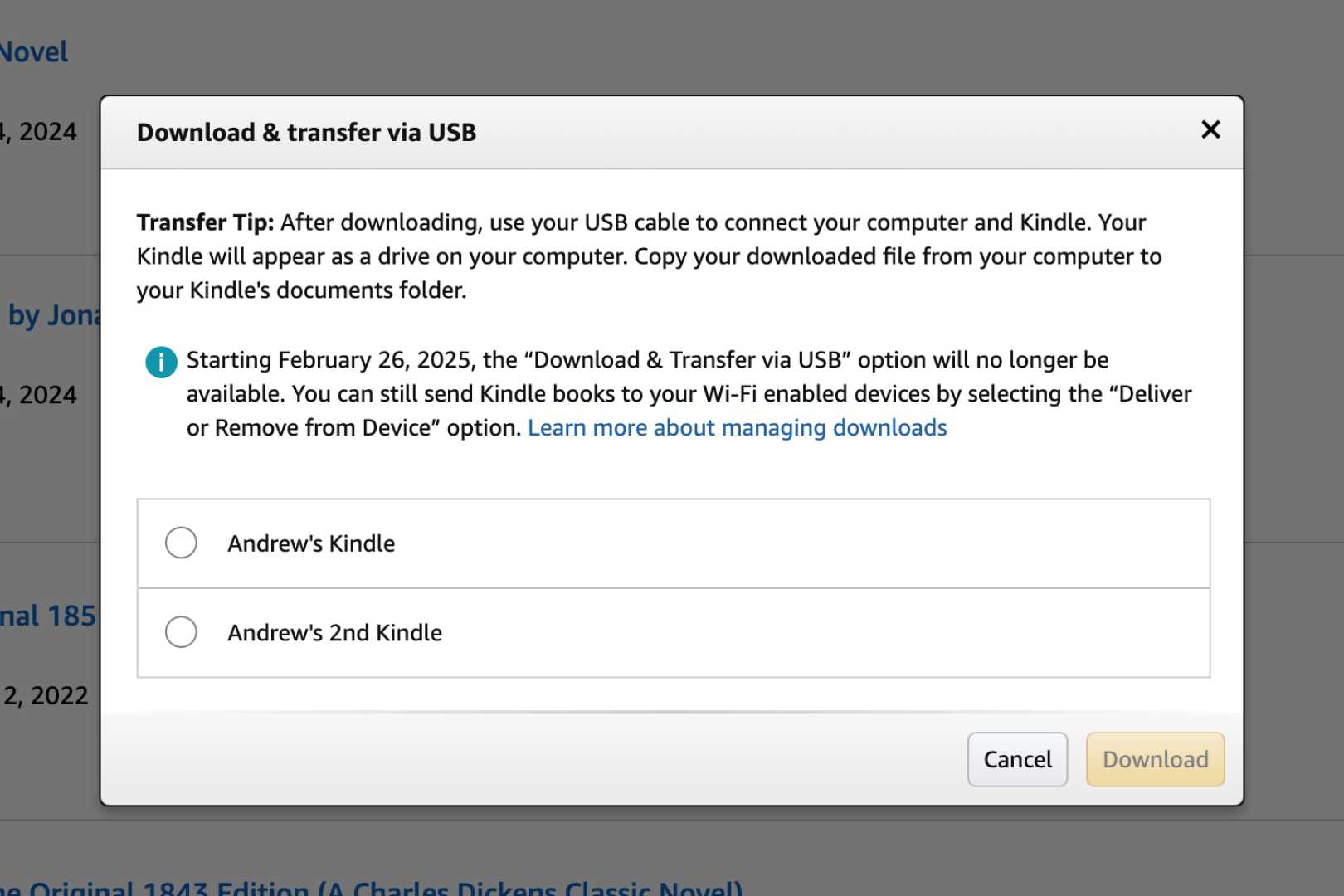Tech
Amazon to Cut Kindle Download Feature, Users Have Until February 2025

SEATTLE, Wash. — Amazon is phasing out an integral feature of its Kindle e-reader service, alarming users who rely on downloading their e-books. As of February 26, 2025, Kindle users will no longer be able to download e-book files directly to their computers, effectively limiting their control over their digital library.
For over a decade, customers enjoyed the ability to download copies of their Kindle books for safekeeping or for use on devices that are no longer supported. This announcement marks a significant change in how readers manage their digital content. “It feels like Amazon is taking away my ownership of my books,” said Kindle user Sarah Thompson, who highlighted her concerns over the loss of control.
This transition has not been widely communicated, and many users are unaware of the impending change. The warning is only visible when users attempt to download books from their account settings. The looming deadline has prompted some readers to rush to save their e-books. “I’ve started downloading my complete library. I won’t take any chances,” said Thompson.
Digital content, unlike physical books, is often considered a license rather than a true ownership. Historically, Amazon has exercised significant control over digital content, including instances where it remotely deleted books from users’ Kindles without notice, such as George Orwell‘s works in 2009. Recent changes to Roald Dahl‘s books also sparked debate over content guidelines.
Support for older Kindle models is specifically affected by this change. Those using models such as the Kindle DX, which was phased out years ago, will need to adapt by utilizing manual download methods. “If you don’t download your books before the cutoff, you’ll be left with just the titles that can be accessed within the Amazon ecosystem,” noted tech analyst Jeremy Clark.
Users can still format their books through other means using software like Calibre to convert e-books to compatible formats for their devices, but those wishing to keep their digital libraries intact have limited time left.
The implications of this policy adjustment extend beyond inconvenience; it raises questions about digital ownership and the ability of major corporations to change the rules after consumers have already purchased their products. “This change makes me reconsider my reliance on Kindle,” said avid reader Mark Bennett.
As the deadline approaches, users are encouraged to assess their digital libraries and make necessary backups. The decision to limit downloads represents a broader trend in the tech industry, driving interest in alternative e-readers and formats.
What do you think about Amazon’s decision to revoke the ability to download e-book files? Are you changing how you manage your e-books? Share your opinions and experiences on this significant shift in digital book ownership.












